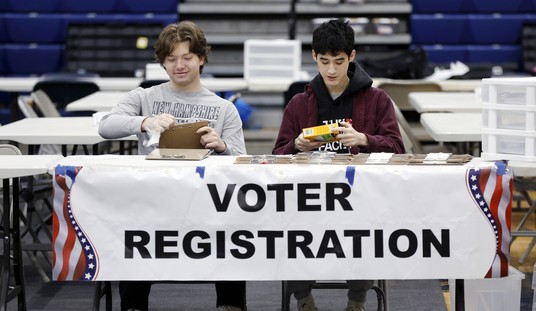If there is one area where there is the greatest promise of some bipartisan agreement in Congress, it is in the area of criminal justice reform. As many noted conservatives have stated including Mark Levin, Ken Cuccinelli, the Heritage Foundation, criminal justice reform proposals mesh neatly with conservative principles and ideals. Chief among them is the concept of the individual. Instead, criminals are placed into broad-based categories based on the crimes committed and beholden to a mandatory sentencing regimen that denies individuality. Not all drug possessors or dealers were created equal. Not all burglars were created equal. And not even everyone convicted of murder are created equal. Yet mandatory sentencing guidelines suggest the exact opposite.
The cost of incarceration is excessive. In many states, the cost is second only to Medicaid. There are an approximate 2.6 million people behind bars as I write this and it behooves this writer to believe and it defies logic to assume that 2.6 million Americans rightfully belong behind bars. As for the federal prison system, 50% of prisoners are incarcerated for drug crimes. Marijuana is usually the drug implicated. We can begin the process of reducing prison populations on a state and federal level by reclassifying marijuana as a Class II drug.
Most reforms are considered “front end” solutions or “back end solutions.” The front end solutions break down into two forms- reforming sentencing guidelines and special programs to alleviate incarceration rates. Texas under Governor Rick Perry undertook some of the best reforms and managed to decrease their prison population by 12% AND reduce it’s crime rate to it’s lowest levels since 1968. What did they do? They created special drug courts to steer people into treatment programs. They instituted a swift parole/probation violation regimen for violators. No longer were they dragged before a judge, but were sent immediately to prison. Going back to the days of Skinner, we know that punishment is a good method of changing behavior IF the punishment is swift and consistent. And Texas invested $241 million instead of the extra $2 billion projected to be spent on increased prison space by using that lesser amount to expand in-prison and community-based interventions.
Mississippi and Michigan have considered or adopted the idea of presumptive parole. That assumes that once the parole time threshold is reached, the prisoner is presumed to be eligible lessening the need for parole board hearings where the prisoner bears the burden of proof. Under the presumptive parole system, the state bears that burden of proof for continued incarceration.
Mississippi further reformed their parole system reducing the length of time before one was eligible. Utah likewise adopted Texas’ swift and certain system for parole/probation violators, but created a special area of their prisons to house such inmates giving them greater access to resources. They were incarcerated for a few nights or several days depending on the severity of the violation.
As for the back-end reforms, they mainly entail prisoner reentry into the community programs. Again, many may feel this a waste of time and effort, but such programs certainly dovetail with conservative values of redemption and forgiveness. If someone has served their debt to society, they should be accepted back into that society. Kentucky expunges the records of Class D felons. Other states are issuing certificates of rehabilitation vouching for behavior of the released inmate.
Conservatives are cognizant of the fact that some people, despite the best efforts, will simply reenter society and return to a life of crime. But, we should be equally cognizant of the fact that 95% of all prisoners will reenter society. Placing punitive hurdles before them like discrimination in housing and employment ensures they will return to prison. That is why “ban the box” legislation should be favored by conservatives. Several states have actually adopted these laws, but they apply to state employers and contractors. However, most job opportunities are in the private sector.
Furthermore, many states are restoring voting rights to released prisoners. Again, if they served their debt to society and continue to do so outside prison while on parole or probation for a specified period of time, there is no reason to disenfranchise these people.
Another idea worth pursuing is a data-driven approach like that used in Ohio with their recidivism assessment tool. Although not perfect, the results are encouraging enough to consider using it nationwide. Based on a battery of tests, criminal history and interviews objectively scored, those with low recidivism scores are given lighter sentences or even probation.
In a previous argument, I argued for abolition of the death penalty. Except in a few states, it is rarely carried out. The length of time spent on death row is a drain on state coffers amid a series of endless appeals. However, I also suggested that the death penalty be reserved for three specific areas: (1) terrorists, (2) mass or serial killers, and (3) the death of a law enforcement official. Let the Left justify why those groups should not be subject to capital punishment.
Finally, another area of concern is police shootings. Despite the number of high profile cases, the overwhelming majority of police shootings are justified. Contrary to popular belief, a white has just as much a chance of being shot and killed by the police as any other demographic group. Body cameras are all well and good, but they won’t deter them. Instead, this subject will be taken up in another article.













Join the conversation as a VIP Member